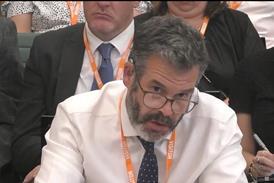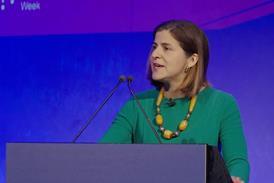Enabling people to apply for a divorce online could eliminate up to 13,000 hours of time spent by court staff checking divorce petitions, a senior civil servant responsible for several family justice reforms predicts.
Adam Lennon, head of family modernisation and improvement at HM Courts & Tribunals Service, told a Westminster Legal Policy Forum today that he did not believe it was right that getting a divorce 'should be determined by the need to copy text from one document to another - both of which the court has right in front of them in any event'.
Lennon spent the first of his 15 years in the courts service issuing divorce petitions. He returned an estimated four out of every 10 petitions to the applicant because of an error. 'In many cases, applicants and their legal representatives were not able to accurately copy word-for-word the place of marriage from the marriage certificate,' he recalled.
Lennon estimates that court staff spend about 13,000 hours 'doing nothing than checking and returning divorce petitions to people. The value that they add is very little'.
The forum heard that HMCTS has adopted an 'agile' approach to digitising the divorce service, which has enabled the agency 'to react to change rather than having to pay a contractor to change what we have already paid for'. Digital prototypes were tested with 'real users' every two weeks. HMCTS initially piloted a scheme last year enabling people to apply for a divorce online, print off the form and send it to court. The service has been extended so that people can submit a form, send relevant documents and make payments.
The number of rejected applications fell, at the start of the reform process, from 40% of all paper applications received to 7% for digital applications, Lennon said. Currently, 0.4% of digital applications received are rejected.
HMCTS is in the early stages of adopting a similar approach to the family law public law service for the process for caring for vulnerable children.
Lennon was described as an 'unsung hero' by Sir James Munby, president of the family division, in his first appearance since the judiciary announced that he will be succeeded by Court of Appeal judge Sir Andrew McFarlane when he retires in July.
Munby said online divorce had been a 'triumphant success'. However, the outspoken judge highlighted five 'burning issues' requiring statutory reform: no-fault divorce; cohabitants' property rights; ancillary relief; alleged perpetrators of domestic abuse being able to cross-examine alleged victims; and transparency.



























5 Readers' comments